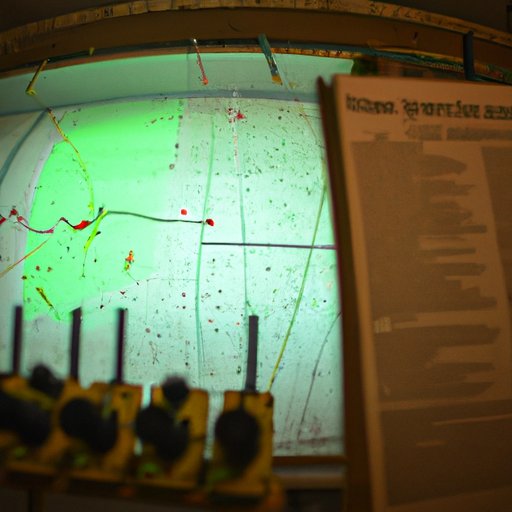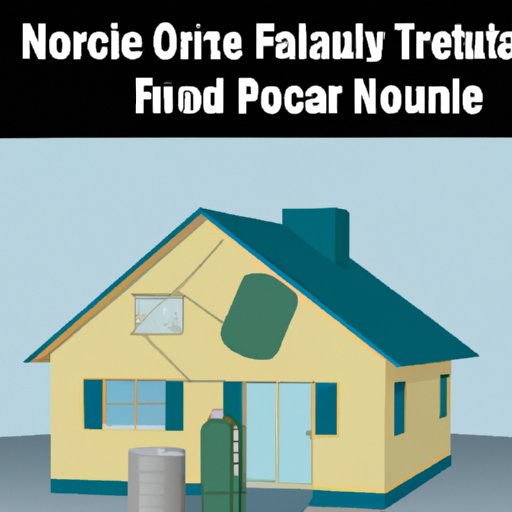
Introduction
A nuclear attack can result in widespread destruction, loss of life, and long-term environmental damage. This means it’s essential to know what to do and how to prepare for such an event to increase your chances of survival. In this article, we’ll provide you with information and practical tips to survive after a nuclear attack.
10 Critical Steps to Survive After a Nuclear Attack
The following are crucial steps you can take to survive after a nuclear attack:
Step 1: Seek shelter immediately
If a nuclear attack occurs, seek shelter immediately. Go to the basement or a location with thick walls and no windows. Alternatively, find a sturdy building or a fallout shelter that can provide protection from radiation.
Step 2: Turn off ventilation systems and seal off windows and doors
Seal off windows, doors, and other openings to prevent radioactive material from entering the shelter. You can use duct tape, plastic sheeting, or any other appropriate material to seal off these openings. Turn off any ventilation systems to prevent radioactive air from circulating in the room.
Step 3: Stay inside for at least 24-48 hours
Stay in the shelter for at least 24-48 hours after a nuclear attack. Radiation levels are generally highest right after the attack, and they decrease over time. Waiting for at least 24-48 hours can significantly decrease your exposure to radiation and increase your chances of survival.
Step 4: Monitor news updates and emergency broadcasts
Stay informed about the situation by listening to the news and emergency broadcasts. This can help you make informed decisions about your safety and that of your loved ones.
Step 5: Stay hydrated and conserve food supplies
Stay hydrated by drinking plenty of water and conserve food supplies. High-energy foods such as granola bars, nuts, and dried fruits are good choices for your survival kit.
Step 6: Use protective gear if necessary
Use protective gear such as masks, gloves, and clothing to avoid exposure to radioactive material.
Step 7: Plan an escape route if shelter is compromised
Plan an escape route in case the shelter is compromised. Knowing an escape route can help you evacuate quickly and safely.
Step 8: Avoid contaminated areas and limit exposure to radiation
Avoid contaminated areas and limit your exposure to radiation. Seek shelter, stay indoors, and avoid consuming contaminated food or water.
Step 9: Stay informed about radiation levels and evacuation routes
Stay informed about radiation levels and evacuation routes. Authorities will likely provide maps and other information to help you navigate the affected areas and seek medical attention if necessary.
Step 10: Seek medical attention if necessary
Seek medical attention if you experience symptoms of radiation sickness, including nausea, vomiting, and dizziness.

How to Prepare Your Home for Nuclear Disaster
Preparing your home for a nuclear disaster involves several steps:
Identifying safe areas in your home
Identify safe areas in your home, such as the basement or a location with no windows and thick walls. Create a designated shelter area that is stocked with essential supplies and emergency items.
Strengthening the structure of your home
Strengthen your home’s structure by adding additional support in the basement or other safe areas. This can help protect you and your family in case of a structural collapse.
Building a nuclear fallout shelter or finding a suitable one
Build a nuclear fallout shelter or find a suitable one in your community. Fallout shelters can provide additional protection from radiation and increase your chances of survival.
Stocking up on essential supplies and emergency items
Stock up on essential supplies and emergency items such as food, water, medical kits, flashlights, batteries, and communication devices. These items can help you survive after a nuclear attack and increase your chances of survival.
Essential Items to Have in Your Nuclear Fallout Shelter
The following items are essential to have in your nuclear fallout shelter:
Food and water supplies
Stock up on non-perishable food and water supplies that can last at least two weeks or more. Be sure to store these items in airtight containers and away from any sources of radiation.
Medical kit and first aid supplies
Prepare a medical kit and first aid supplies that include bandages, antiseptics, and other essential items. Make sure to include any prescription medications that you need.
Protective gear and clothing
Have protective gear and clothing such as masks, gloves, and suits to avoid exposure to radioactive particles.
Flashlights, batteries, and other essential equipment
Have flashlights, batteries, and other essential equipment such as a radio, compass, and map to help navigate during a nuclear attack.
Communication devices and emergency communication plans
Have communication devices such as mobile phones and emergency communication plans to stay in touch with your loved ones and receive updates from authorities.
What to Do in the First 24 Hours After a Nuclear Attack
The first 24 hours after a nuclear attack are crucial. Here’s what you should do:
Staying calm and focused
Stay calm and focused to make rational decisions and avoid panic.
Seeking shelter and following the 10 critical steps
Seek shelter immediately and follow the 10 critical steps discussed above.
Communicating with loved ones and checking on their safety
Communicate with your loved ones and check on their safety. Reassure and support them during this challenging time.
Staying informed and following emergency protocols and instructions
Stay informed and follow emergency protocols and instructions provided by authorities. This will help you stay safe and informed during the aftermath of a nuclear attack.
Surviving a Nuclear Attack: Mental and Emotional Preparation
The aftermath of a nuclear attack can be traumatic and emotionally challenging. Here are some ways to prepare mentally and emotionally:
Coping with fear and anxiety
Coping with fear and anxiety can be challenging, but you can seek support from loved ones or mental health professionals.
Practicing relaxation techniques and mindfulness
Practicing relaxation techniques and mindfulness can help reduce stress and promote mental wellbeing.
Building a support network
Building a support network can provide you with emotional support and practical help during and after a nuclear attack.
Seeking professional help if necessary
Seeking professional help from mental health professionals can help you cope with the aftermath of a nuclear attack.
Teaching Your Children How to Survive a Nuclear Attack: Tips and Strategies
It’s essential to prepare your children for the possibility of a nuclear attack. Here are some tips and strategies:
Age-appropriate ways to talk to children about nuclear attacks and disasters
Use age-appropriate language to explain the risks of a nuclear attack to your children. Reassure them that you’re there to keep them safe.
Preparing children for emergency situations
Teach children about emergency situations and how to respond appropriately. Practice emergency drills and exercises regularly.
Helping children cope with stress and trauma
Help children cope with stress and trauma by providing emotional support, listening attentively, and seeking professional help if necessary.
Conclusion
Surviving a nuclear attack requires preparation, critical thinking, and decision-making skills. By following the steps outlined in this article, you can increase your chances of survival and minimize the physical and emotional damage caused by a nuclear attack. Remember to stay informed, stay calm and focused, and seek help when necessary.




